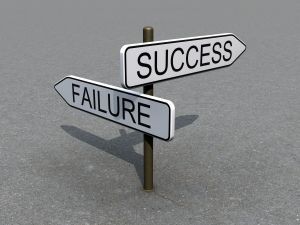 Learning from failure is a necessity, whether in your business or personal life. Leaders need to think about failure as a process we go through rather than an event to avoid.
Learning from failure is a necessity, whether in your business or personal life. Leaders need to think about failure as a process we go through rather than an event to avoid.
I came across two articles on how to fail well from Henna Inam of SmartBlog on Leadership and Erika Andersen, contributor to Forbes.
“Every person – no matter how accomplished, successful, smart, or focused – fails at some point(s) in his or her life,” says Andersen.
She goes on to say, they may be small failures or big ones, and people either learn and grow from them or are devastated.
Inam and Andersen share some valuable lessons on how to fail well.
When failure happens, we tend to look for someone to blame. Think deeply about how it went wrong and write it down. Is there someone else to blame? Or do you have yourself to blame?
If you feel up to it, share what you wrote with others. Sharing can be cathartic and can also generate some valuable feedback for your future endeavors. You can get useful information which will help you move forward.
“If we get stuck in the emotions of blaming others or ourselves, we really don’t learn the lessons from our failures,” says Inam.
“It’s human nature, when we mess up, to want to avoid thinking about or looking at what we did,” says Andersen.
The most useful thing you can do is learn from your mistakes and to do that, you need to reflect on it.
To do this, Andersen gets in what she likes to call ‘fair witness’ mode. She imagines someone else is observing her behavior. She asks three questions: What did this person do? Why didn’t it work? What could he or she do differently next time?
An apology acknowledges your error, the reality of the situation, and you no longer have to defend yourself but you can begin to move to repair the mistake. When you own up to your mistakes, you come off as strong and confident, not weak.
Once you understand what happened and how to do it differently, try again.
“If you decide not to try that particular thing again, make sure it’s because you've honestly determined that it’s not something you want to do, or that it’s something at which you’re unlikely to be successful – rather than because you’re terrified that you’ll fail again,” says Andersen.
Take failure as a valuable learning experience you can take with you for the rest of your career. As leaders our job is to learn from our failures and move forward.
What lessons have you learned from your failures?
Image courtesy of Stock.xchng
